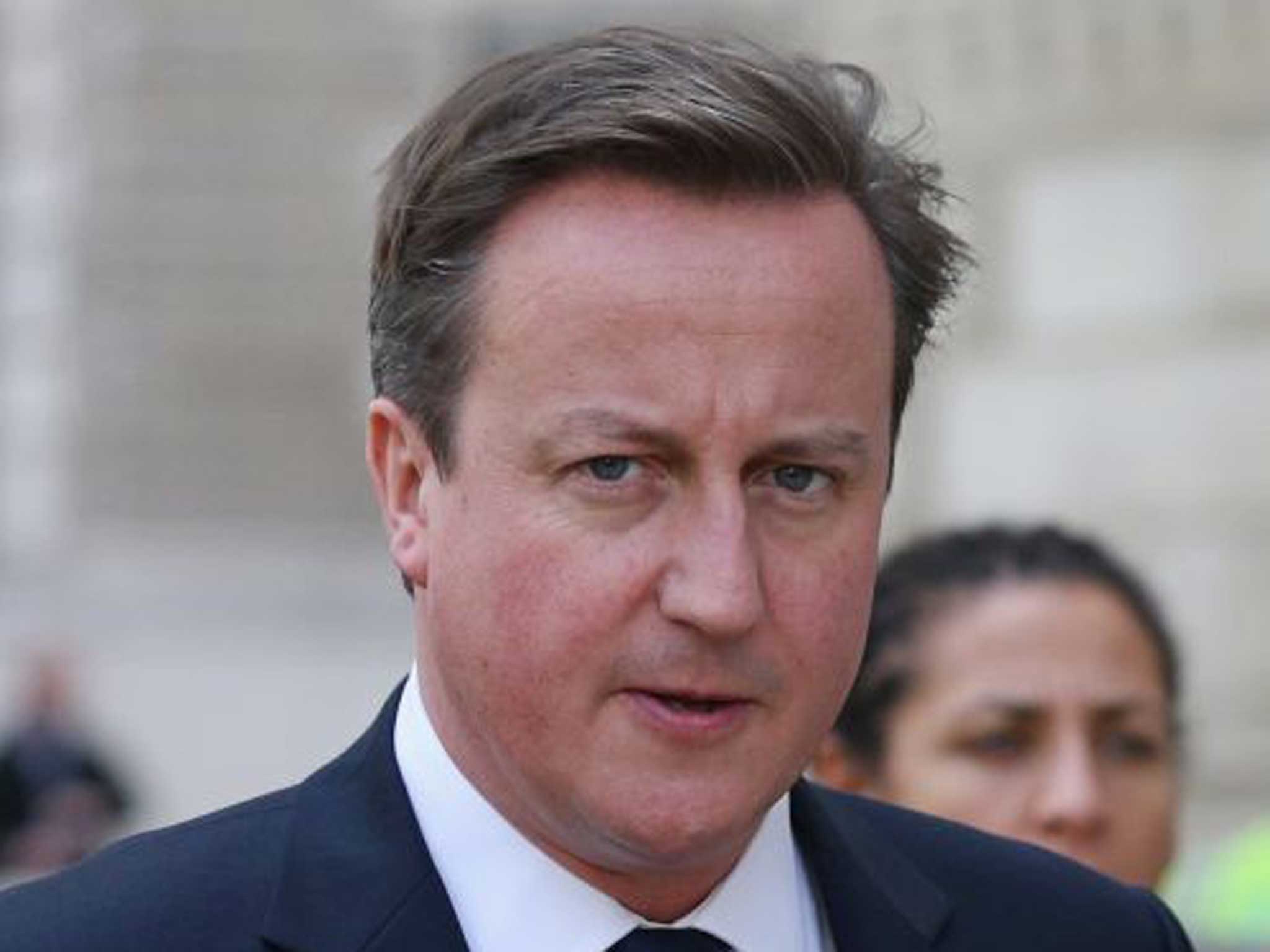Eurobond tax scandal: David Cameron accused of dodging concerns over loophole that costs Treasury at least £500m a year
Prime Minister refuses to explain why he hasn’t stopped use of Eurobond exemption

David Cameron’s attempts to “brush aside” legitimate concerns that the Government has not yet closed a legal tax loophole, which is losing the public purse at least £500m a year, have been condemned by MPs and campaigners.
When asked at Prime Minister’s Questions about revelations in The Independent that the Coalition had failed to stop the use of the quoted Eurobond exemption to avoid tax, Mr Cameron said decisions had been made by the Treasury and implied that was the end of it.
Shabana Mahmood, Labour MP for Birmingham Ladywood and shadow Exchequer Secretary to the Treasury, said: “It’s pretty shocking that David Cameron just brushed aside this important question. We’re talking about a loophole that costs us around half a billion a year, yet the Prime Minister arrogantly dismisses the issue. At a time when families are facing a cost-of-living crisis and the deficit is high, this isn’t good enough.”
She added: “David Cameron and George Osborne must explain why they decided not to close this loophole. And we need a government that takes tax avoidance seriously and is on the side of the majority of families and businesses who pay their fair share.”
The campaign group UK Uncut says it is now considering targeting the high-street chains highlighted in The Independent, which include Nando’s, Pizza Express, Café Rouge, BHS, Maplin, Office and Pets at Home. The companies all cut their taxable profits by borrowing at high interest from their owners through the Channel Islands Stock Exchange.
In the fourth part of a joint investigation with Corporate Watch, The Independent reveals today how three of Britain’s biggest food and drink companies are using the same legal loophole; they are United Biscuits, which is behind major brands including McVitie’s, Penguin, Jaffa Cakes and Twiglets; Molson Coors, whose beers include Carling, Coors, Cobra and Miller; and Iglo Foods, which owns Birds Eye.
At Prime Minister’s Questions, Seema Malhotra, Labour MP for Feltham and Heston, asked: “Has the Prime Minister ever been lobbied on this loophole and will he now pledge to close it immediately?”
In reply Mr Cameron said: “To my memory I’ve never been lobbied on this particular issue. I looked at it this morning, the Treasury has listened very carefully to the arguments and has made the decisions for the reasons that she knows.”
Last year, HMRC considered closing the loophole, noting that companies were using the quoted Eurobond exemption “for the purpose of circumventing the requirement to deduct tax at source”, but after lobbying from the financial sector decided against it. Sarah Kwei, a UK Uncut spokesperson, said that Mr Cameron “has repeatedly made promises that he will take tough action to stop aggressive tax avoidance but nothing seems to have changed. Instead HMRC continues to be treated as a soft target by companies which can hire teams of lawyers and accountants to play the system and exploit loopholes.
“While the Government has not taken action, UK Uncut has successfully used occupations and protests in tax dodgers’ stores to highlight the issue and build pressure for change.”
A spokesman for HMRC said the department “challenges and closes loopholes and does not condone their use”. He added that the tax authorities do not accept that at least £500m is being lost to the exchequer each year through the loophole.
Commenting on HMRC’s consultation on the issue last year, he said: “The number of Eurobonds issued intra-group was not known, and one of the purposes of the consultation was to identify the likely real impact. It became apparent that the changes suggested in the consultation... would have had adverse effects on companies that are entitled to pay gross under double taxation treaties. The Government decided to explore the issue further in the context of a wider consideration of cross-border payments.”
Subscribe to Independent Premium to bookmark this article
Want to bookmark your favourite articles and stories to read or reference later? Start your Independent Premium subscription today.

Join our commenting forum
Join thought-provoking conversations, follow other Independent readers and see their replies